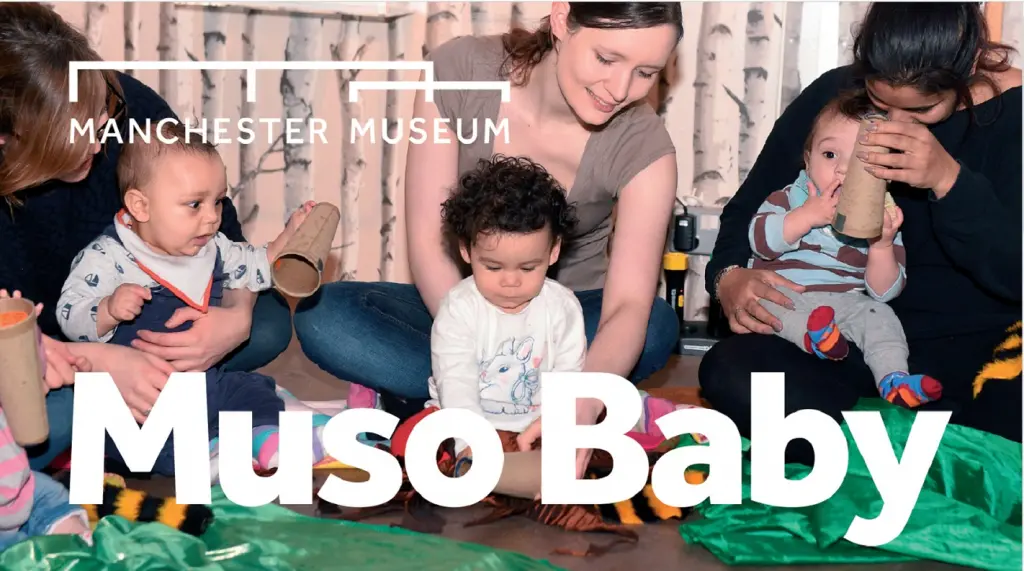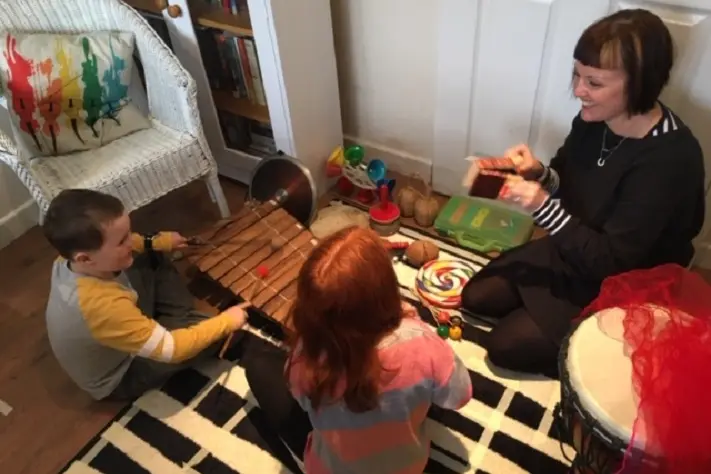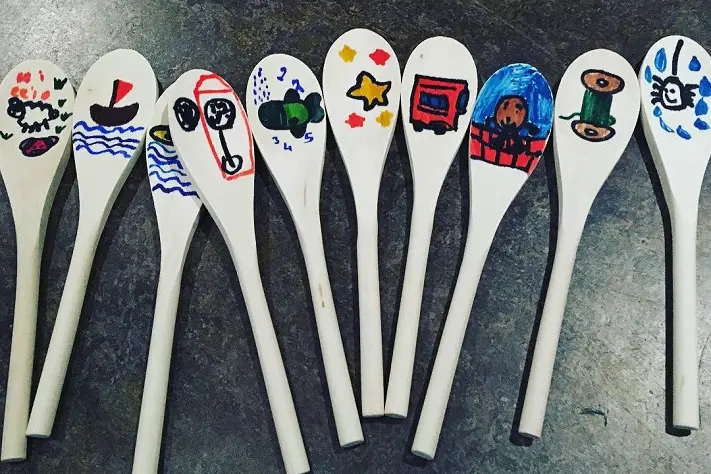9th June 2020
As part of Infant Mental Health Awareness Week (#IMHAW2020), we are delighted to publish reflections from Elaine Bates, Early Years Coordinator Manchester Museum, and Rachel Swanick, music therapist, on using cultural places to support parent-infant relationships, health and wellbeing.

Reflections from Elaine:
Muso Baby is part of a social prescribing programme run by Manchester Museum, building on a collaborative cross-sector approach to developing arts and health and early years programmes over a number of years. Working with music therapist Rachel Swanick, the aim of Muso Baby was to deliver a therapeutic intervention in a non-clinical setting for mothers experiencing or at risk of anxiety or postnatal depression and their babies, who might not normally access this kind of support or visit a museum. With referral from local health visitors and children’s centre staff, families attended a series of interactive music and sensory play sessions at the museum with the aim of developing resilience and the confidence to seek further support for their own wellbeing. When the museum closed in March due to the COVID virus, the sessions moved online as part of our Manchester Museum in Quarantine activities. Sessions are currently delivered through a closed facebook group Muso Baby Virtual! Open to all and includes both live chat and singing between 10.00 – 11.30am every Tuesday morning.

Reflections from Rachel:
Muso Baby is based on a key principle of music therapy: the use of music to promote positive attachment through affect attunement. Since lockdown started in the UK, I have been unable to lead face-to-face sessions. This is a big shift in my practice – going from working with natural parent-infant interactions on a small scale (we usually have no more than 6 families in each session), to providing more generic music and discussion, to often nearly 150 people around the globe. One of the most noticeable changes is in audience: not only are many more people engaging with Muso Baby, but even though my sessions are ‘live’, I can’t see the children singing and dancing along and so my music has lost its adaptability. This is difficult for me as a practitioner and I have wondered what it is like for the families watching. As humans, we have a need to interact with others in an interpersonal way, but I wonder if these numbers of viewers will continue after lockdown has finished, i.e. will online become the new way for us to access services, whether that be educational, social, or health?
As mental health and cultural professionals, we often talk about social prescribing and, during lockdown, more people are actively engaging in crafts, exercise, nature and music to feel better and give them a focus in uncertainty. But what is the link between creating something and feeling emotionally well? If you have a good sense of resilience, then you are able to change negative thinking in to positive action. As we approach the ‘New Normal’, let’s actively encourage meeting together as arts and health practitioners and, hopefully soon, we can open the doors on our cultural spaces as pioneering places of health and wellbeing.

Elaine Bates, Early Years Coordinator Manchester Museum, and Rachel Swanick, music therapist

